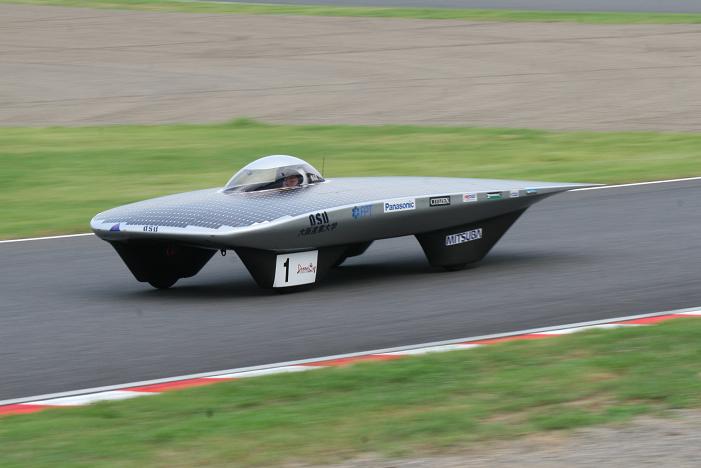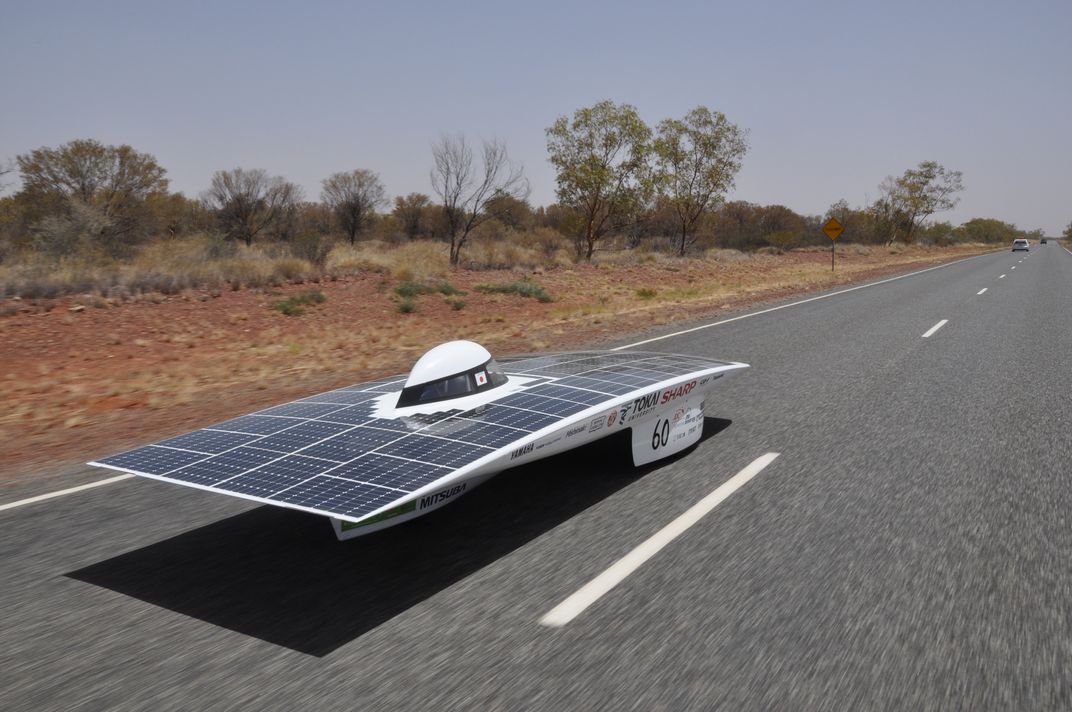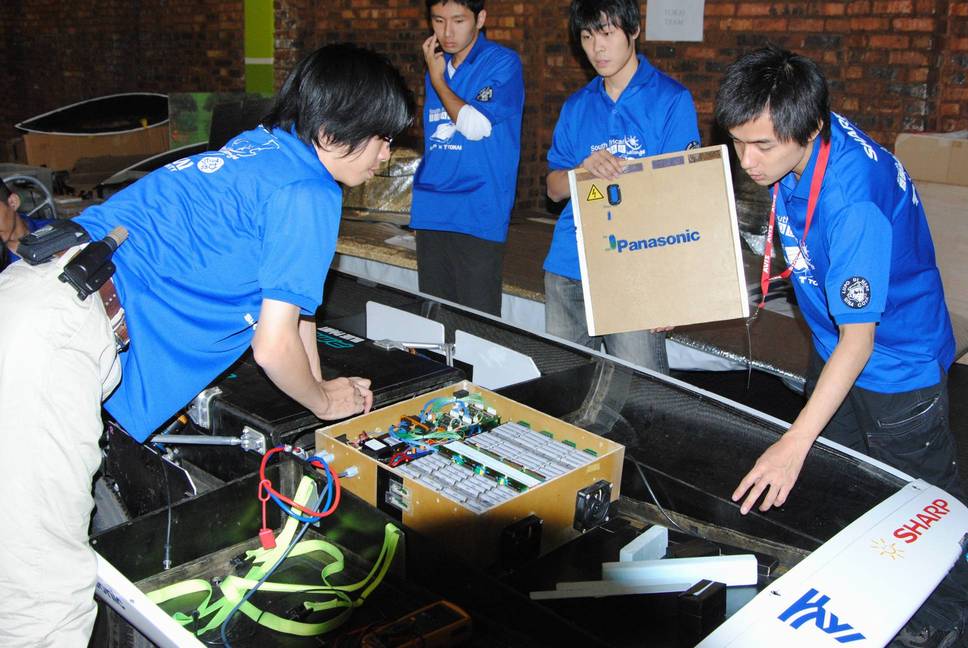
Oct 30, 2024
- Products & Solutions
- Press Release
Dec 02, 2010
Products & Solutions / Blog Posts
Panasonic is committed to developments involving green technology. For example, solar cars with high-capacity lithium-ion batteries developed and manufactured by Panasonic Energy Company have been actively researched for major solar car races all over the world.

For example, the following solar car teams equipped with Panasonic's high-capacity lithium-ion batteries technology have excelled in performance to demonstrate the below award winning history.

Solar cars are run by motors driven by electricity generated from solar panels. Excess electricity is stored in the batteries, which supply electricity to the motor when the charge from the panel is insufficient at night or due to bad weather. Improvements to the performance of solar cars involve increasing the performance of the solar panels and the capacity of the batteries while reducing the weight of the battery module.
Professor Kimura, the director of the Tokai University solar car team, commented that, "Solar power fluctuates according to the weather and the time of the day. In addition, the solar cars require power all out of proportion to what the solar power panels can generate, for instance when accelerating or when going up slopes. The batteries acts like a wallet: the quicker it can handle expenses and store income, the better it is at handling various environments.
The South African Solar Car Race had particularly harsh conditions for the batteries, featuring a tunnel over five kilometers long where the cars had to rely solely on the batteries. "Panasonic's lithium-ion batteries have the best energy for their mass of any batteries in the world, and their sheer power was certainly apparent in this race," said Professor Kimura.

Mr. Fujita, who led the Osaka Sangyo University team that won the 2010 Dream Cup Solar Car Race Suzuka, commented, "In a long, two-day race like this, and with weather changes heavily affecting the output of the solar power cells, we were able to maintain our speed till the finish thanks to the performance of Panasonic's high-capacity lithium-ion batteries."
 Panasonic Lithium-ion Batteries
Panasonic Lithium-ion BatteriesPanasonic provided the cylindrical 18650-type (18 mm diameter, 650 mm length) high-capacity lithium-ion batteries for all three races.
. These batteries are primarily used in laptop computers and have the highest level of energy density in the industry. Their light yet high-capacity nature makes them operable for long periods of time and allows compact battery modules. With these features these batteries have gained a high reputation through their fine performance under adverse conditions in the solar car races, opening up the possibility of expanding their use to electric vehicles in the future.
The content in this website is accurate at the time of publication but may be subject to change without notice.
Please note therefore that these documents may not always contain the most up-to-date information.
Please note that German, French and Chinese versions are machine translations, so the quality and accuracy may vary.